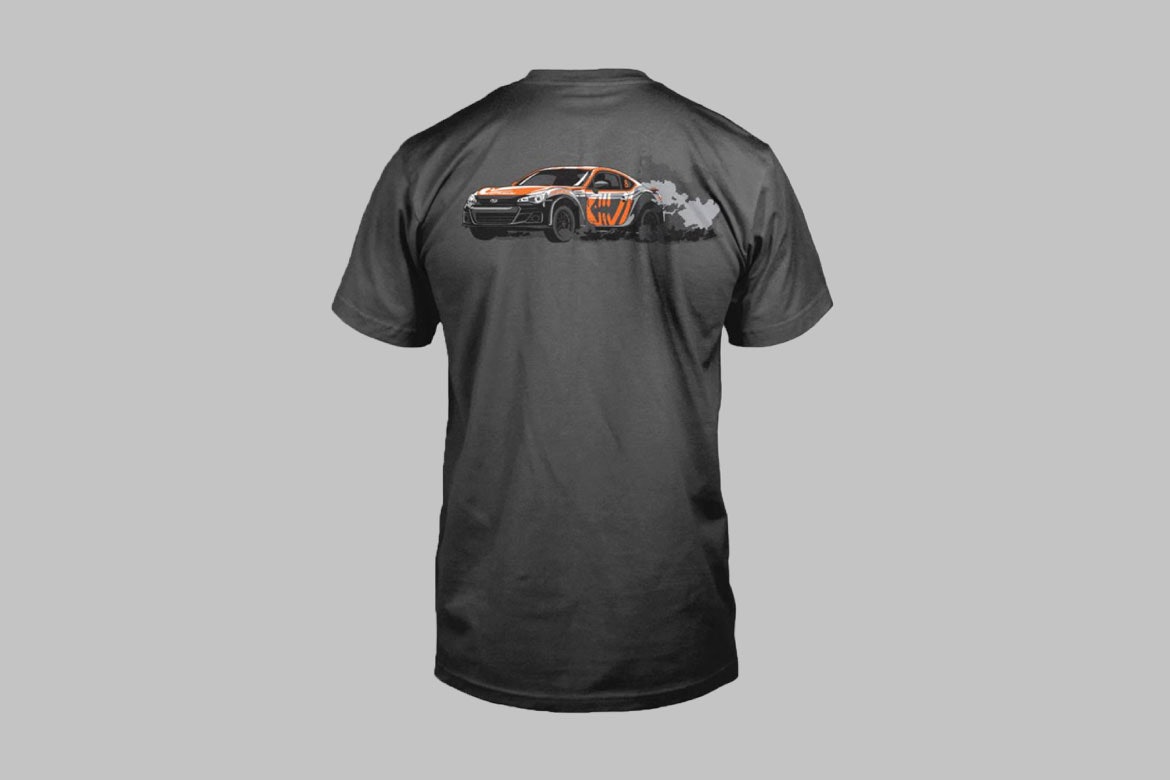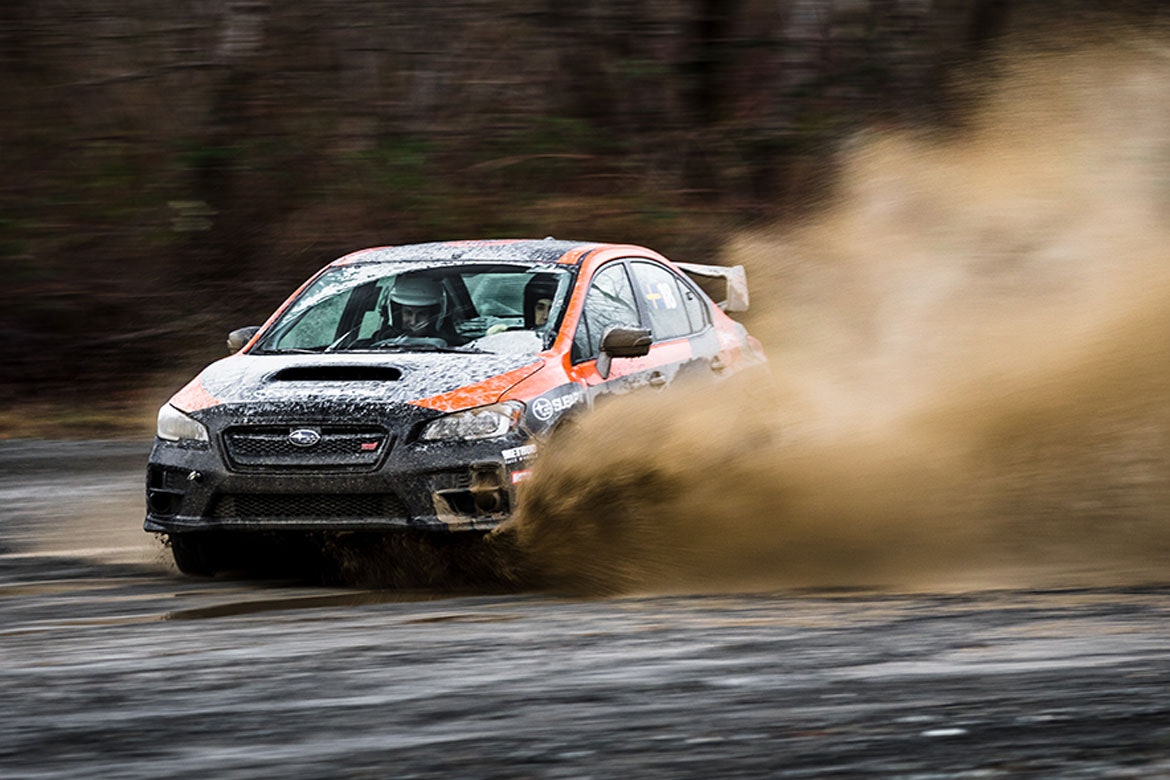Safari Rally Kenya is a rally near the top of anyone’s bucket list. But for Alex Kihurani, Sean Johnston’s co-driver in WRC2, it means far more than that.
In this exclusive DirtFish column, Kihurani – an American with Kenyan roots – explains just how much this weekend, his first ever Safari, means to him:
“What in the world got you into rallying?” said with a genuine sense of bewilderment, is a question so frequently asked of me these days, the answer should be rehearsed by now.
It’s a fair question – it’s not something anyone I come across in my typical day at the office in London would do, and even in the World Rally Championship, it’s not really something Americans do, let alone a black American.
If I didn’t have a tendency toward long, convoluted answers to basic questions, I would answer with: “The Safari Rally.” But I can’t help but to add: “Let me explain,” with a multigenerational circle around the globe.
There’s only a handful of countries in the world where rallying makes the front-page news, and Kenya is one of them. The Safari Rally is the biggest motorsport event in Africa, and it brings so much passion across every community within Kenya’s diverse cultural make-up.
While the original, East African Coronation Safari was created to celebrate the coronation of Queen Elizabeth only for those British whites living in the colony, it soon expanded to capture the admiration and enthusiasm of every community the rally passed through across its 5000+km route spanning Kenya, Tanzania, and Uganda.
Since then, the rally has woven its way into the fabric of so many communities, from the native African community with drivers like Patrick Njiru, to the Indian East African migrant community with the most successful, non-European drivers of the WRC like Shekhar Mehta and Joginder Singh, to the descendants of British settlers that remained, like 1994 Safari Rally winner Ian Duncan.
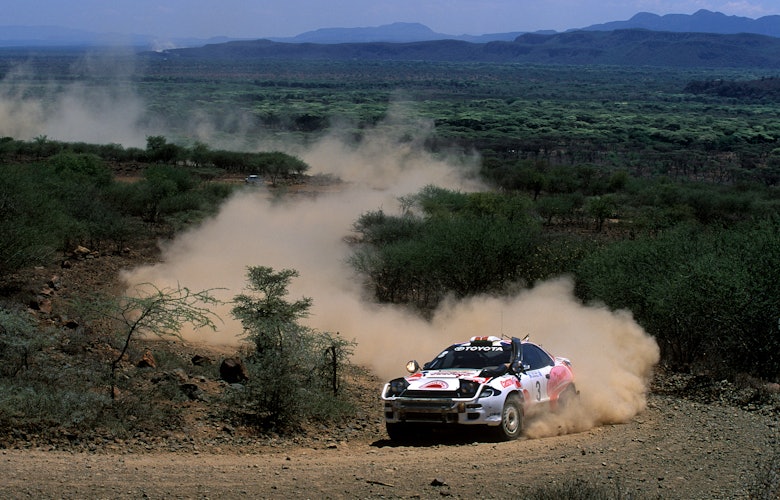
It’s a shining example of how sport can bring people together in a way that allows one to look at the past with rose-tinted glasses, while still eagerly awaiting the excitement that’s coming next year, regardless of the group you’re coming from.
My dad grew up on a farm, in a small town near Mount Kenya called Karatina. Seeing the Safari Rally was the annual tradition, competing in the Safari Rally was always the dream, but also a financial impossibility.
In 1975, my dad’s last Safari Rally, Sandro Munari managed to place his legendary Lancia Stratos directly into a ditch in front of him. Legend has it, my dad in his platform shoes and bell-bottom jeans pushed Munari out of the ditch (or at least, got one hand on the car amongst the swarm of spectators pushing him out of the ditch) on his way to a podium that year.
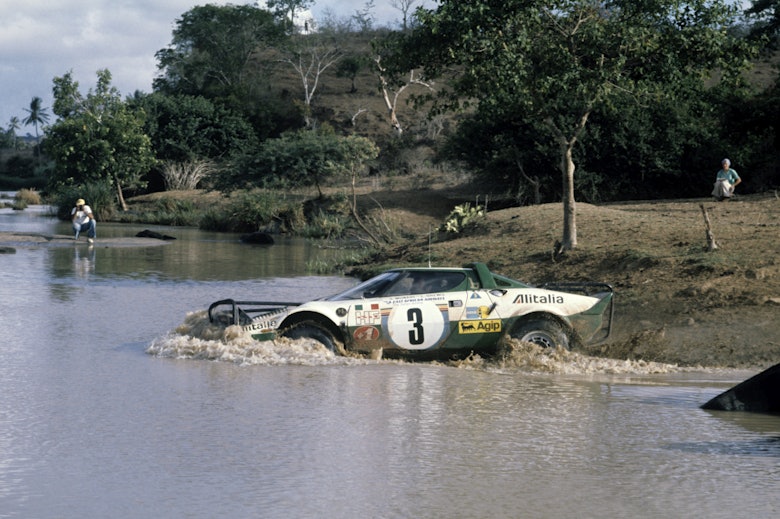
By the following year, my dad was in America to begin university, something that maybe could afford him the opportunity to scrape together enough money to return and compete in the Safari Rally himself.
Instead he’s had to (quite happily) settle for me to do it, for now that is…
For an American, my indoctrination into rallying came especially early – my parents claimed my passion was “genetically inherited” as demonstrated by my intense focus for anything rally-related from the time I was a toddler.
Every year I’d wait eagerly for the WRC review VHS tape to arrive in the mail, and every year as technology got better, and I got older, I tried to find new ways to bring me closer to my rallying heroes both in America and abroad, and to these spectacular rallies in far-off lands that I never could experience but always dreamed about – the RAC Rally (Great Britain), the 1000 Lakes Rally (Finland), and the source of all the second-hand rallying tall-tales, the Safari Rally (Kenya).
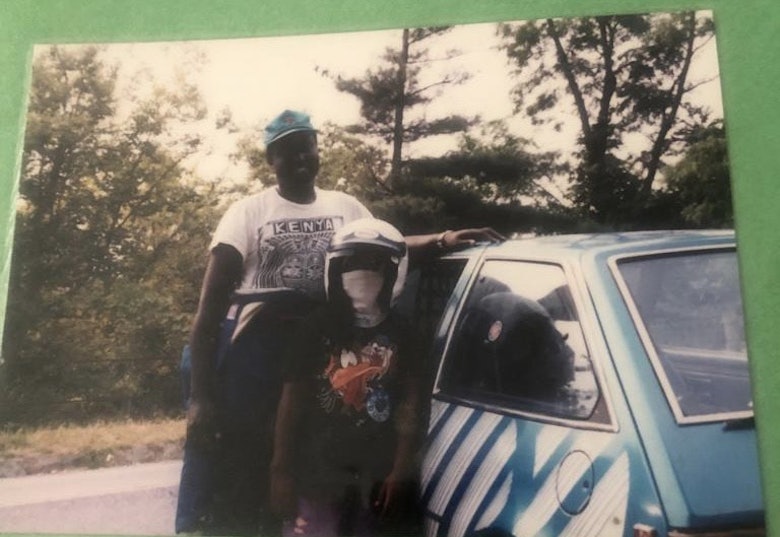
Fortunately, I was able to build my own reasonably successful career from the co-driver’s seat in various American rally championships from 2003 to 2013 until I had my own realization that, if I were ever to have the opportunity to compete in the WRC regularly, and maybe one day, the Safari Rally, I too needed to leave my home.
It turns out that one more nationality, one more emigration, one more passport, was needed to complete this kind of Kihurani-style safari on the way to the World Rally Championship.
However, in striving for my dreams in the WRC, the one aspect of my life that got neglected was my family back in Kenya. I haven’t been back here in 13 years, and as the years have gone by, my knowledge of my nine aunts, two uncles, and 30+ cousins (let alone extended family) becomes more faded and ambiguous.
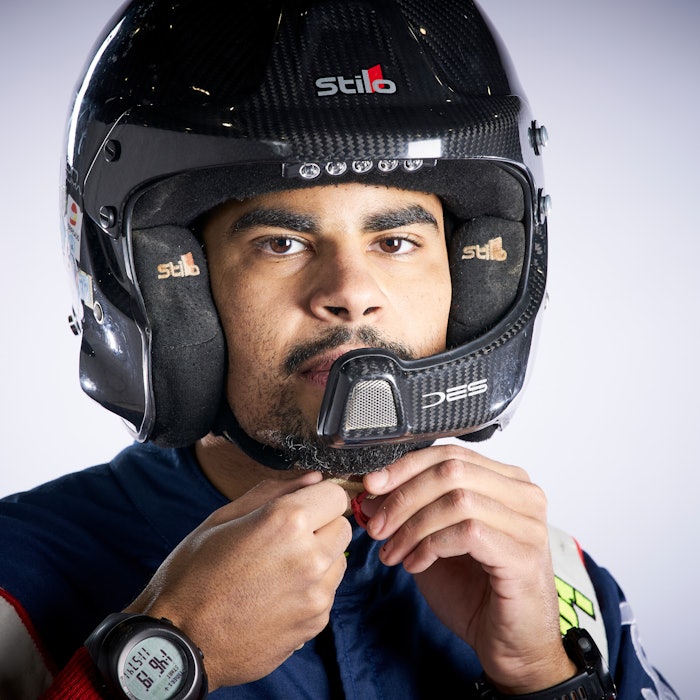
I want to keep my eyes open for the giraffes rather than just the times, the movement schedule, and the perfect set of pacenotesAlex Kihurani
It doesn’t seem entirely fair to make such a strong claim to Kenya when my frame of reference approaching this event might be British than anything else.
After all, I’m traveling from my London flat on my British passport, just after the Platinum Jubilee celebration (that I skipped like a true Londoner), flying to Kenya for what is essentially the Platinum commemoration of what was officially the East African Coronation Safari, running in the primary support category of the WRC, squeezing the event in a tight timeline between Portugal and Estonia, and seeking to maximize our points scoring chances on our one far-away, fly-away round for the 2022 season.
After which I’ll pick up my bags, head back to London, and bury my head deep into turning around all my pacenotes, schedules and documentation for our third attempt at the pure speed-test in Estonia, back in the familiarity of the European rallying mainstream.
But amongst all the chaos that comes with pushing to be our best in the WRC, I will take a moment to pause, to breathe, to embrace every experience, every interaction, and every unpredictable adventure Sean and I will surely encounter this week.
I want to keep my eyes open for the giraffes rather than just the times, the movement schedule, and the perfect set of pacenotes. I can’t convey my level of gratitude toward my driver Sean, and our sponsor, Driscoll’s, for agreeing to put up the extra budget, and make the extra sacrifice, to make our multigenerational family dream finally come true.
While I may have passed through immigration on my British passport, the instant embrace of family, and the warm, friendly chaos of Nairobi has already made me feel like yet another place I can call home. And maybe the last thing I should be worrying about is how Kenyan I am, but rather celebrating how I can experience everything this rally means to so many different groups of people that I get to be a part of.
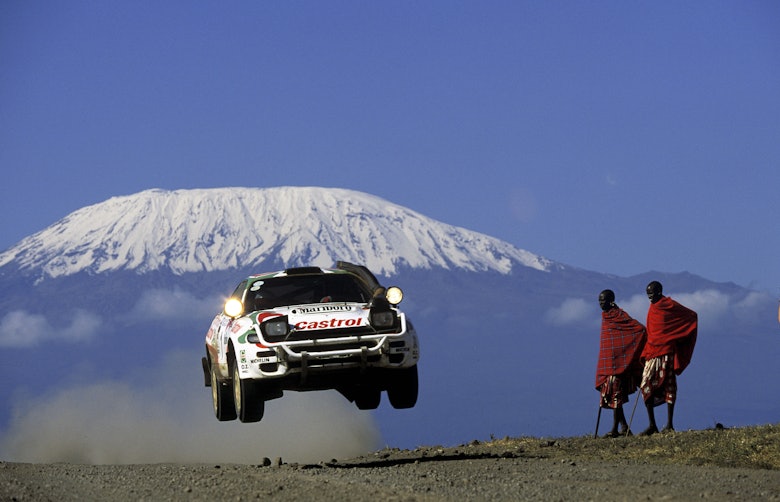
As an American, it’s special to be the only all-American team to take on arguably the biggest challenge in the WRC in nearly 50 years. As a Brit, it’s special to take on an exotic, African Safari, in the greatest event created to commemorate the longest-reigning queen, in the very place she found out she was going to be the Queen.
As the future husband of my East African Indian fiancé, whose parents had to flee Kenya and Uganda after the independence movements, I get to take on the event that their drivers managed to dominate over the European professionals for so many years.
And finally, as a Kenyan, I get to circle back to my ancestral home of rallying, putting a Gakuu and a Kihurani in a genuinely competitive team, in the top half of the field.
I’m incredibly fortunate not just to be in this position, starting the Safari Rally, but also to be able to appreciate it from so many perspectives, and feel such a personal connection to the event, to the people, and to the history of this beautiful country, surrounded by my warm and loving family that I’ve missed so dearly.
And hopefully, through my convoluted answer to a fairly basic question, I’ve also demonstrated why, for the future of rallying, it’s so important for us to go to far-away places like Kenya, or East Asia, or America, outside the European mainstream, to give the sport the appeal it deserves.
It’s not that everyone will be a huge fan of the WRC, but our biggest fans, future competitors, future stars, can come from anywhere.
And yes, the last line is basically from the kid’s movie Ratatouille.




